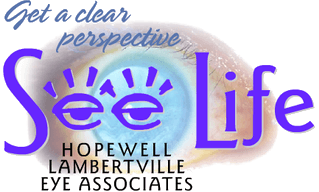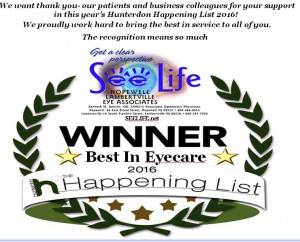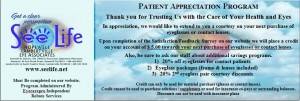Importance of Back-to-School Eye Exams
Plan on an annual vision limited school screening, but it does supersede a in person eye exam for your kids and yourself. Screenings may identify vision issues but do not address them directly, particular eye health issues.
As your child prepares to start another school year, ( an yourself prepare for a work) don’t forget to take care of one of their most important learning tools — their eyes. (see Blinkland eye learning video game). Blinkland
https://www.seelife.net/blinkland-eye-friendly-mobile-board-game-blink-land/
Regular vision screenings and exams are critical for children as they advance through school. Research consistently shows a strong connection between vision and academic performance.
When it comes to your child’s eyes, being proactive is important.
So, let’s take a closer look at the issue.
Vision and learning
About 80% of learning involves your eyes, whether it’s through reading, writing or watching a video screen. Given that, an uncorrected vision problem can be a significant health barrier to learning (HBL).
Eye issues such as myopia (nearsightedness) or eye strain can make it more difficult for young students to follow along and understand classroom lessons, but can also lead to serious eye health issues. Note based on multiple large scale studies, if one or both parets and nearsighted (myopic) the chance of your child being nearsighted is 70% or greater. But this can be addressed with an eye health exam prior to school starting at age 2-3 and prior to starting their academic years and then annually.
Read More: High Myopia and Eye Health Concerns
https://www.seelife.net/the-link-between-high-myopia-and-serious-eye-diseases/
Children with undetected vision disorders who struggle in class can even be misdiagnosed with learning disabilities or attention-deficit/hyperactivity disorder (ADHD), according to the American Optometric Association.
How often should children get their eyes checked?
Children should have their eye exam before starting their academic years 2-3 or prior to kindergarten and then annually. A screening at school is a fairly brief assessment that can indicate a potential vision issue. It can also be done by a pediatrician, family doctor or nurse at regular well-check visits. But this again does not substitute for a full - comprehensive refractive and health eye exam performed at Hopewell - Lmabertville Eye Associates (www.seelife.net) Hopewell Lambertville Eye
Screenings could include a:
- Distance vision test, where your child reads letters off a chart on the other side of the room.
- Close-up vision test, where your child reads small text from a card held close to their face.
- Color-blindness test, where colored numbers or symbols are within a background of multicolored dots.
- Stereopsis (or stereo) test, where three-dimensional (3D) vision is tested with special glasses.
If a screening detects a potential issue, a more thorough eye exam should be scheduled with an Hopewell Lambertville Eye
Do schools offer vision screenings?
The NCCVEH recommends distance vision screening as a preferred practice for children and adolescents participating in routine and mass vision screening, beginning at age 3 years. Distance vision screening is an option, along with instrument-based screening, for children ages 3, 4, and 5 years. Recommendation for Vision Exams : In New Jersey: Screening for visual acuity shall be conducted biennially for students in kindergarten through grade 10. New Jersey Eye Health Screening Policy
Signs of vision trouble in kids
Will kids tell you if they’re having trouble seeing? Usually NO . Not until they catch a ball in their face, complain they cannot see the school board, may show signs of being introverted or become non participatory in activities due to frustration, .... They might complain … but how often do young children really share information like that? Or even recognize vision issues enough to know there may be a problem?
That’s why the doctors at Hopewell Lambertville Eye recommends asking your child questions and watching for behavioral changes that may signal vision trouble. For example:
- Talk to your child about their new classroom or where they’re sitting to gauge whether they’re having issues seeing.
- Ask them whether their eyes ever feel tired after watching something on a screen.
- Watch for blinking, squinting and tearing of their eyes.
- Pay attention to headaches or fatigue.
Academic and athletic (coordination) troubles also may point toward vision issues. Pay particular attention to their reading development and their coordinated play and athletic activities.
When should children get a full eye exam?
An annual comprehensive eye exam isn’t always necessary for children. However, plan on regular visits for your child to see an Hopewell Lambertville Eye if
- Your child wears glasses or contacts. “Prescriptions should be rechecked annually
- There’s a family history of pediatric eye disease
- Family history of myopia (nearsighted) or binocular concerns such a "lazy eye" strabismus )child develops crossed or wandering eyes)
- Variance on appearance of the eyes for example: droopy lids, asymmetry in ocular posture or symmetry
- Your child has a systemic medical condition that might affect vision. (such as Diabetes, Rheumatoid disorders, Thyroid, Lyme .....)
In summary - it is never to soon to take care of your child's (and your) eye health. Call for an appointment at Hopewell Lambertville Eye
Hopewell Eye: 84 East Broad Street Hopewell NJ 085425 609-466-0055
Lambertville Eye: 16 South Franklin Street Lambertville, NJ 08530 609-397-7020
References
https://preventblindness.org/vision-screening-guidelines-by-age/#:~:text=The%20NCCVEH%20recommends%20distance%20vision,%2C%204%2C%20and%205%20years.
https://statepolicies.nasbe.org/health/categories/health-services/preventive-health-screenings-in-hs/new-jersey#:~:text=Screening%20for%20visual%20acuity%20shall,in%20kindergarten%20through%20grade%2010.




